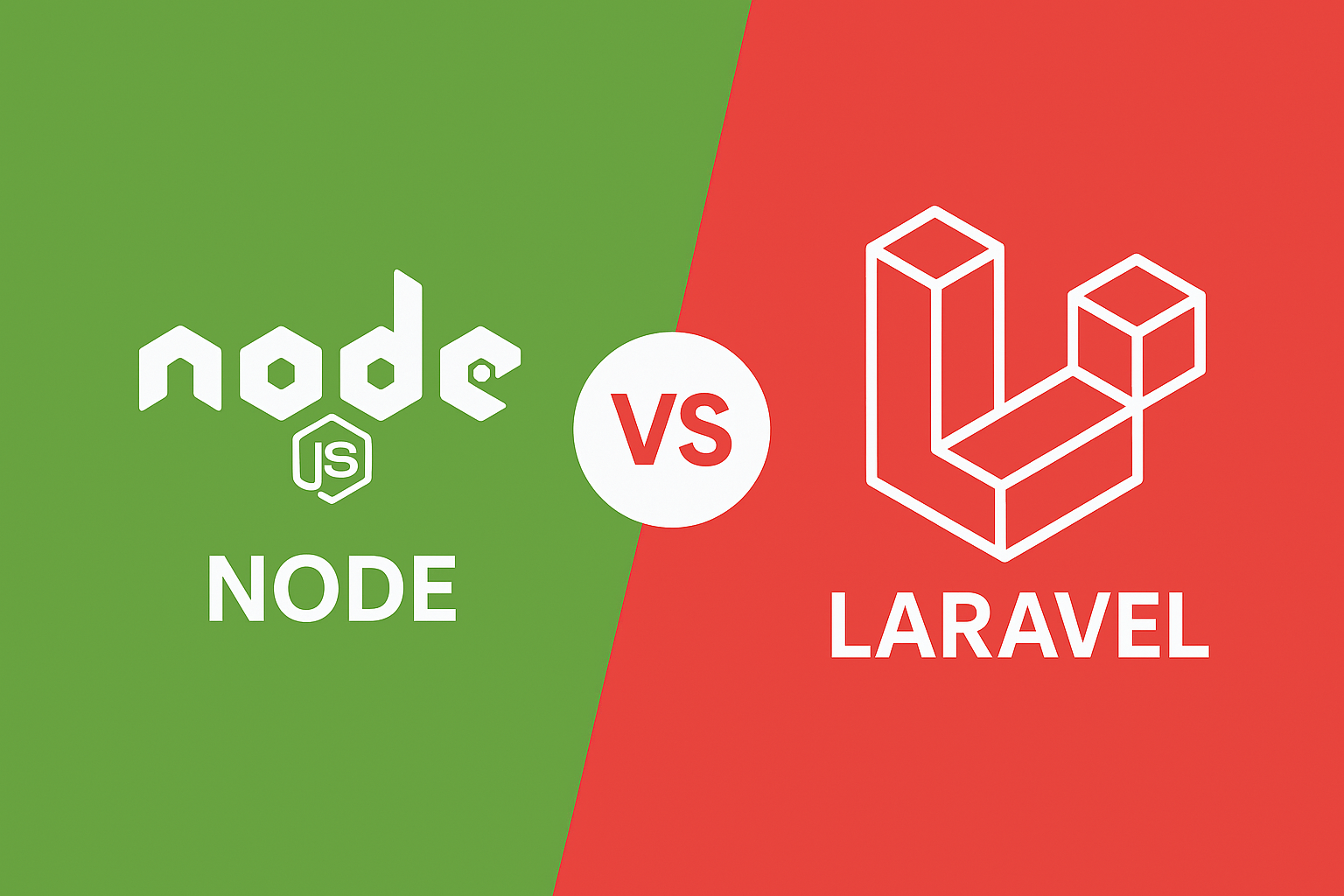Node.js vs Laravel Which One Should You Choose?

Introduction
When building web applications, choosing the right backend technology is crucial. Two of the most popular backend frameworks are Node.js and Laravel. Node.js is a JavaScript runtime that enables server-side scripting, while Laravel is a PHP framework that simplifies web development with built-in tools. In this blog, we’ll compare Node.js and Laravel, highlighting their strengths, weaknesses, and ideal use cases to help you decide which is best for your project.
What is Node.js?
Node.js is an open-source, cross-platform runtime environment that allows developers to run JavaScript code outside the browser. It is built on Chrome’s V8 engine and is widely used for building scalable, high-performance applications.
Advantages of Node.js
- Non-Blocking I/O: Handles multiple requests simultaneously, making it highly efficient.
- Full-Stack JavaScript: Enables frontend and backend development with a single language.
- High Performance: Uses the V8 engine for fast execution.
- Large Community Support: Extensive libraries and frameworks available through npm.
- Scalability: Ideal for microservices and real-time applications.
When to Use Node.js
- When building real-time applications like chat apps or gaming platforms.
- When developing APIs or microservices.
- When requiring high scalability and asynchronous operations.
- When working with a JavaScript-based tech stack (React, Angular, or Vue.js).
What is Laravel?
Laravel is a PHP framework designed to simplify web application development by providing built-in tools for routing, authentication, and database management. It follows the MVC (Model-View-Controller) architecture and offers a clean, elegant syntax.
Advantages of Laravel
- Elegant Syntax: Easy to read and write code with built-in functionalities.
- Built-in Authentication & Security: Provides authentication, encryption, and protection against SQL injection.
- Blade Templating Engine: Simplifies frontend rendering with reusable components.
- Database Migration & ORM: Uses Eloquent ORM for simplified database interactions.
- Robust Community & Documentation: Extensive resources for learning and troubleshooting.
When to Use Laravel
- When developing content management systems (CMS) or eCommerce platforms.
- When needing built-in authentication, security, and database management.
- When building applications that rely heavily on structured data.
- When working with a PHP-based tech stack.
Key Differences Between Node.js and Laravel
|
Conclusion
Choosing between Node.js and Laravel depends on your project’s requirements. If you’re building a high-performance, real-time application or working with JavaScript across the stack, Node.js is an excellent choice. However, if you need a structured, secure, and easy-to-use backend framework with built-in features, Laravel is the better option.
For APIs, scalable applications, and real-time systems, Node.js is ideal. For traditional web applications, content management systems, and enterprise solutions, Laravel is a great fit.
Ultimately, both technologies are powerful, and your decision should be based on your development expertise, scalability needs, and project complexity.
10 months before